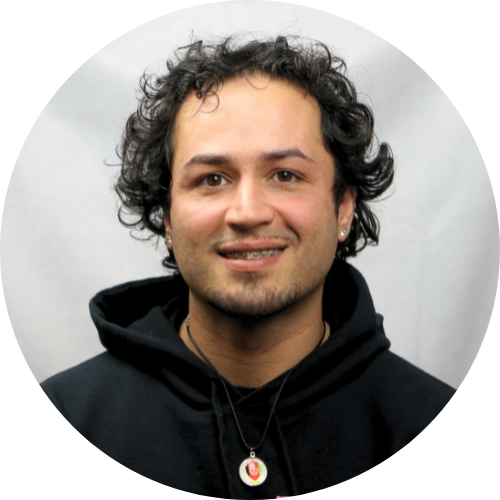During Ramadan, fasting can pose mental and physical challenges for anyone, especially for athletes, such as Sacramento State basketball junior guard Zee Hamoda.
Ramadan is the ninth month of the Muslim calendar and the holy month of fasting. A Muslim must fast from sunrise until sunset, each day for up to 30 days. This year Ramadan lasted from Sunday, March 10 to Tuesday, April 9.
During that time period, the Big Sky Conference Tournament took place, which proved to be a struggle for Hamoda. He said the support of his teammates and the coaching staff helped him persevere.
Navigating the challenges of being a student-athlete can be exhausting for anyone, but for a Muslim athlete, finding a coach who shares their faith can offer a unique source of support and understanding. It isn’t about making things easier, but creating a deep sense of shared connection, respect and values.
“They want me to grow as a player and do good in school and on the court, but at the same time they really respect my religion,” Hamoda said. “They’re really helpful which is a key for me to be a success.”
When your teammates have different beliefs being in the minority can be hard. From the outside looking in, not every teammate knows what is going on, but Hamoda’s teammates were there to support him.
“I keep my head down sometimes because the running is too much and I just want to catch a breath, but everybody be like, ‘You got this Zee,’ everybody high-fiving me, everybody trying to give me energy,” Hamoda said. “They really helped me get through it.”
A member of the Sac State men’s basketball hall of fame and in his second season as assistant coach, Loren Leath fasted alongside Hamoda.
Leath said he advised Hamoda to take certain approaches for Ramadan, advising Hamoda to take the same steps Leath would the night before.
Leath said he would advise Hamoda to eat and drink water based foods like watermelon, salad and coconut water, to help him stay hydrated.
“It may have been easier for him, for someone that you can do it with and I feel like that is with anything in life,” Leath said. “If you have a partner that you’re working out with, it makes the workout a little bit easier, because you guys would be there for each other.”
Basketball practice is already tough, but practicing without drinking water is much harder. Hamoda said there were great differences between a normal practice session and a practice session during Ramadan.
“It is totally harder during Ramadan than a normal day because as you know, in Ramadan you cannot eat or drink, so, I kind of lose a lot of energy,” Hamoda said.
Sac State head coach David Patrick has coached for 18 years, but has never had to deal with a player who had to fast during the month of Ramadan.
“To me, I’ve been blessed enough to live all around the world, and I have friends that have Muslim faith based in that religion and I knew Ramadan was an important time of year for them,” Patrick said.
While it is not a common practice in the NBA, there are a few current Muslim NBA players that fasted during the season.
Patrick cited the importance of fasting when it comes to being a Muslim athlete as he watched Kyrie Irving fast during the month of Ramadan while playing in the NBA.
“You have to have an understanding of the coach of who you’re getting, not just the player but the person,” Patrick said.
It was this season’s Big Sky Tournament where Sac State had their best run in program history. In the process, becoming the first No. 10 seed to eliminate the No. 1 seed in tournament history.
RELATED: Texas born freshman is the missing piece in the puzzle for Sac State women’s tennis
Hamoda led the Hornets in scoring with 19 points during their big win over Eastern Washington on Sunday, March 10. Sac State was just two wins away from making their first ever appearance in the NCAA Tournament.
Muslim athletes must prepare both mentally and physically each year as Ramadan starts to approach. Hamoda began to share how a student-athlete can mentally prepare in the weeks leading up to Ramadan.
“I start with less water every day until Ramadan, so when Ramadan came my body already responded to it better,” Hamoda said. “I feel like that is the most important thing. I have fasted since I was 12, so food was not as big of a deal as getting water and getting hydrated.”
Not being able to drink water while practicing is one thing, but seeing your teammates hydrate during breaks when you cannot is a different type of struggle.
“It does affect me badly seeing everybody drinking water,” Hamoda said. “But to be honest, I just look the other way sometimes, because I don’t want to see somebody eating or somebody drinking.”
During the hydration breaks, Hamoda said he was able to find ways to keep himself distracted from seeing his teammates hydrate.
“When the coaches say ‘Alright, go drink water,’ I just stay and shoot free throws. Just to make me not look at my teammates drinking water,” Hamoda said.
When it comes to being an athlete who has to fast, the support of their community can mean a lot.
“They’re really helpful, which is a key for me to be a success,” Hamoda said.
































































































































